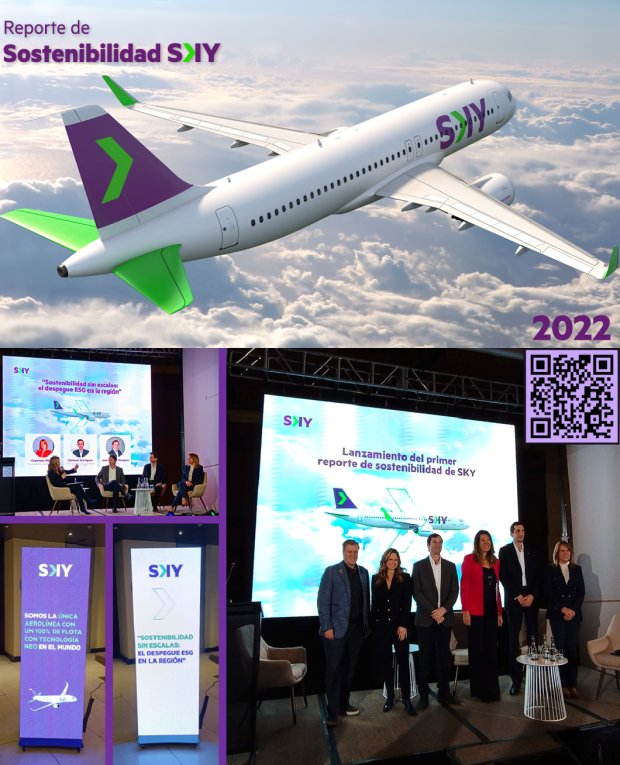SKY Airline Releases Inaugural Sustainability Report

BER counted around 2.2 million passengers in July
July 2023 marked the start of the summer holidays. The holidays, which began in Berlin and Brandenburg on 13 July, are the peak season. A total of more than 2.2 million passengers took off and landed at Berlin Brandenburg Airport. The number of passengers thereby increased by around 100,000 compared to the previous month of June. Last year, Willy Brandt Airport counted around 2 million passengers in July. In July of the pre-pandemic year 2019, there were around 3.4 million passengers at the then Tegel and Schönefeld Airports.
The airport company expects slightly higher passenger numbers until the end of the summer holidays in the capital region on 27 August. A total of around 3.5 million passengers are expected at BER between 13 July and 27 August. A total of 66 airlines fly from BER to 141 destinations in 47 countries during the holidays.
A total of 16,127 aircraft took off and landed at BER last July, which is around 1,000 more than in the same month last year. Around 25,684 aircraft movements were counted in the capital region in July 2019. A total of around 2,743 tonnes of air cargo was loaded at BER last month, which is around 400 tonnes more than in July 2022 and around 460 tonnes less than in July 2019.
The Company organized the symposium “Seamless Sustainability: ESG Takeoff in the Region.” This event addressed the main challenges and opportunities in the aerospace industry, using the airline’s own experiences as an example. The event was inaugurated by Holger Paulmann, CEO of SKY, who emphasized the airline’s efforts to voluntarily produce a sustainability report that transparently showcases progress in the areas of Social, Environmental, and Governance (ESG). The event included a panel discussion focusing on the challenges facing the aerospace industry in advancing the three ESG variables.
“The challenge of being sustainable while maintaining the efficiency of our model is our main goal, however, we approach it with optimism and a desire to be an example for other companies to take more action towards achieving the desired ESG takeoff in the region” Paulmann highlighted. He also mentioned the company’s recovery after the pandemic and states that being sustainable and maintaining the efficiency of its model is the cornerstone of the 2030 Strategic Plan. This plan outlines SKY’s growth with sustainability as a key factor to fulfill the goal of making the sky accessible to everyone.
SKY emphasizes its role as a contributor to the environment and society, that needs to be measurable and communicated in an accurate and accessible way through this report, that was produced voluntarily by the Company.
At present, SKY operates a fleet comprised all by A320 NEO and A321 NEO, that reduce CO2 emissions by 50%, engine noise by 50% and increase fuel efficiency by 18% compared to Airbus CEO Family. SKY has already lowered its CO2 emissions per passenger by 60% in the last 10 years becoming the most Eco-friendly Airline in the world. Also, SKY outlined the company’s commitment to carbon neutrality by 2050.
